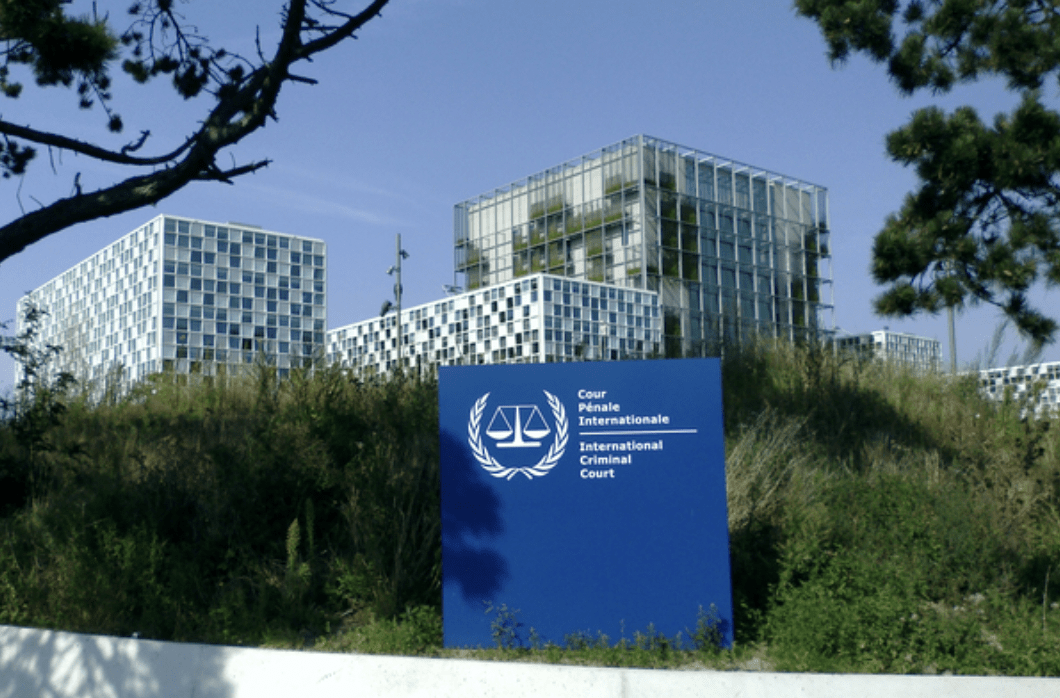The International Criminal Court at 20

International Criminal Court at The Hague/OSeveno-Creative Commons
As the permanent venue for pursuing accountability for those who commit mass atrocities, the International Criminal Court is the crown jewel of the international justice system. But with its credibility having been eroded in recent years, stronger complementary policies are needed to help it fulfill its mission.
Irwin Cotler, Allan Rock and Brandon Silver
September 6, 2022
Copyright Project Syndicate 2022/Re-published with permission
OTTAWA – This month marks the 20th anniversary of the first session of the International Criminal Court under the Rome Statute, a major milestone in the effort to end impunity for mass atrocities. The ICC’s first generation of operation shows how much it is needed – and what more needs to be done to maximize its impact.
The concept of international justice rose like a phoenix from the ashes of the Holocaust, and was first put into practice at the Nuremberg trials of Nazi leaders in 1945. A newfound focus on the individual – on the civilian who deserves protection, and on the perpetrator who deserves punishment – marked a decisive shift away from a system in which heads of state had a license to kill or torture anyone within their borders. The idea of individual criminal responsibility for mass atrocities challenged the old notion of unfettered state sovereignty and its animating ethos that “might makes right.”
Efforts to achieve accountability for mass atrocities have continued in various forms, including through ad hoc special tribunals established by the United Nations Security Council. But as a permanent venue for securing justice for victims and accountability for violators, the ICC is the crown jewel of the current system. It continues to represent the greatest hope for international justice.
Complementary to the ICC is the international sanctions regime, which includes global legal norms (so-called Magnitsky laws) that allow for punitive measures – travel bans, asset seizures, financial prohibitions, and, in Canada, asset repurposing – against specific individuals responsible for human rights abuses.
By interweaving two of the most transformative trends in international justice – trials and sanctions – we can ensure that the effort to combat impunity grows stronger, rather than weaker, over time.
The ICC and targeted sanctions are each significant in themselves; but to achieve their full potential, they should be mutually reinforcing. For example, the sanctions regime should be deployed against anyone who is evading an ICC arrest warrant, or against foreign officials from Rome Statute states who fail to cooperate with the ICC in the fulfillment of its mission.
One of the ICC’s greatest challenges has been ensuring that arrest warrants are enforced. Former Sudanese President Omar al-Bashir traveled freely for years – taking more than 100 foreign trips to various countries – while subject to an ICC arrest warrant. The failure to arrest Bashir eroded the ICC’s credibility and significantly undermined its deterrent effect. But if the image of a free-flying Bashir were to be replaced with one of a president in handcuffs at the airport, the story of international justice would start to look quite different.
State parties to the Rome Statute are required to cooperate with the ICC. But what happens if they refuse, as in Bashir’s case? That is where sanctions come in. These can be imposed on those who evade an ICC arrest warrant as well as on foreign officials who breach their obligation to cooperate with the ICC.
We know that targeted measures can persuade state officials to change course, because we have seen “carrots” and “sticks” – incentives and coercive measures – work together to secure arrests in the past. For example, the promise of eventual EU membership convinced the Serbian government to hand over Ratko Mladić to face trial in The Hague for war crimes, crimes against humanity, and genocide in the 1992-95 Bosnian War. Similarly, the US government’s offer of a $5 million reward for the apprehension of ICC fugitives has resulted in militia leader Bosco Ntaganda’s surrendering himself to the court in 2013, and in the arrest and capture of various other fugitives from Rwanda and the former Yugoslavia.
“Sticks” – such as threats of economic pressure – have also proven effective. For instance, a US threat to withhold aid led then-Yugoslav President Vojislav Koštunica to have a “change of heart” in 2001, resulting in Slobodan Milošević’s extradition to The Hague for trial before an international tribunal.
To bring such leverage more consistently to bear, states with existing sanctions legislation should amend their laws or regulations to include ICC prosecutor requests as one of the triggers for considering new sanctions designations. If all ICC member states were to adopt such a policy, 123 countries would become off-limits to suspects on the run.
Coordinated implementation of targeted sanctions in these circumstances would help advance human rights and the rules-based order that safeguards them. By interweaving two of the most transformative trends in international justice – trials and sanctions – we can ensure that the effort to combat impunity grows stronger, rather than weaker, over time. The victims of the world’s worst crimes deserve nothing less.
Irwin Cotler, a former minister of justice, attorney general, and member of Parliament of Canada, is Canada’s Special Envoy on Preserving Holocaust Remembrance and Combatting Antisemitism. He served as Special Adviser to the Foreign Minister on the creation of the International Criminal Court and as Chair of the International Parliamentary Forum for the ICC.
Allan Rock, Canada’s former ambassador to the United Nations, is a member of the World Refugee & Migration Council.
Brandon Silver, a human-rights lawyer, is Director of Policy and Projects at the Raoul Wallenberg Centre for Human Rights.
